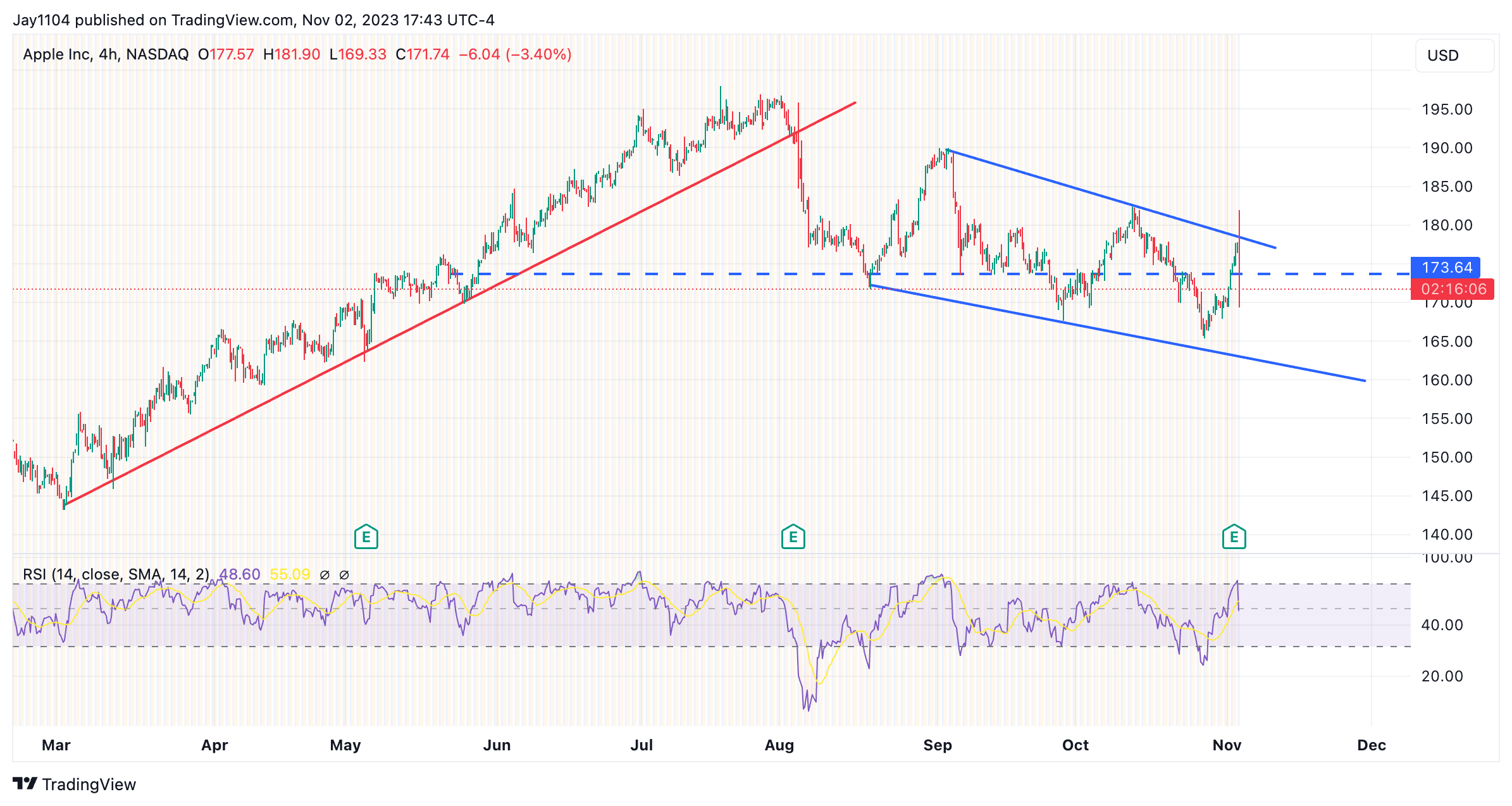Yesterday demonstrated why I was in no rush to give a view on the S&P 500. I feared we might see something like this, and I didn’t feel like getting myself stressed out about it. But I will point out that since the drawdown started in July, we have now seen three rallies of greater than 4%. So far, this rally has been the largest. Maybe this time is different, maybe it’s not.
The funny thing is that the market dynamics still operate precisely the same; stocks still trade with the dollar, rates, and credit spreads. Nothing has changed except that rates have fallen, the dollar has stalled, and spreads have narrowed.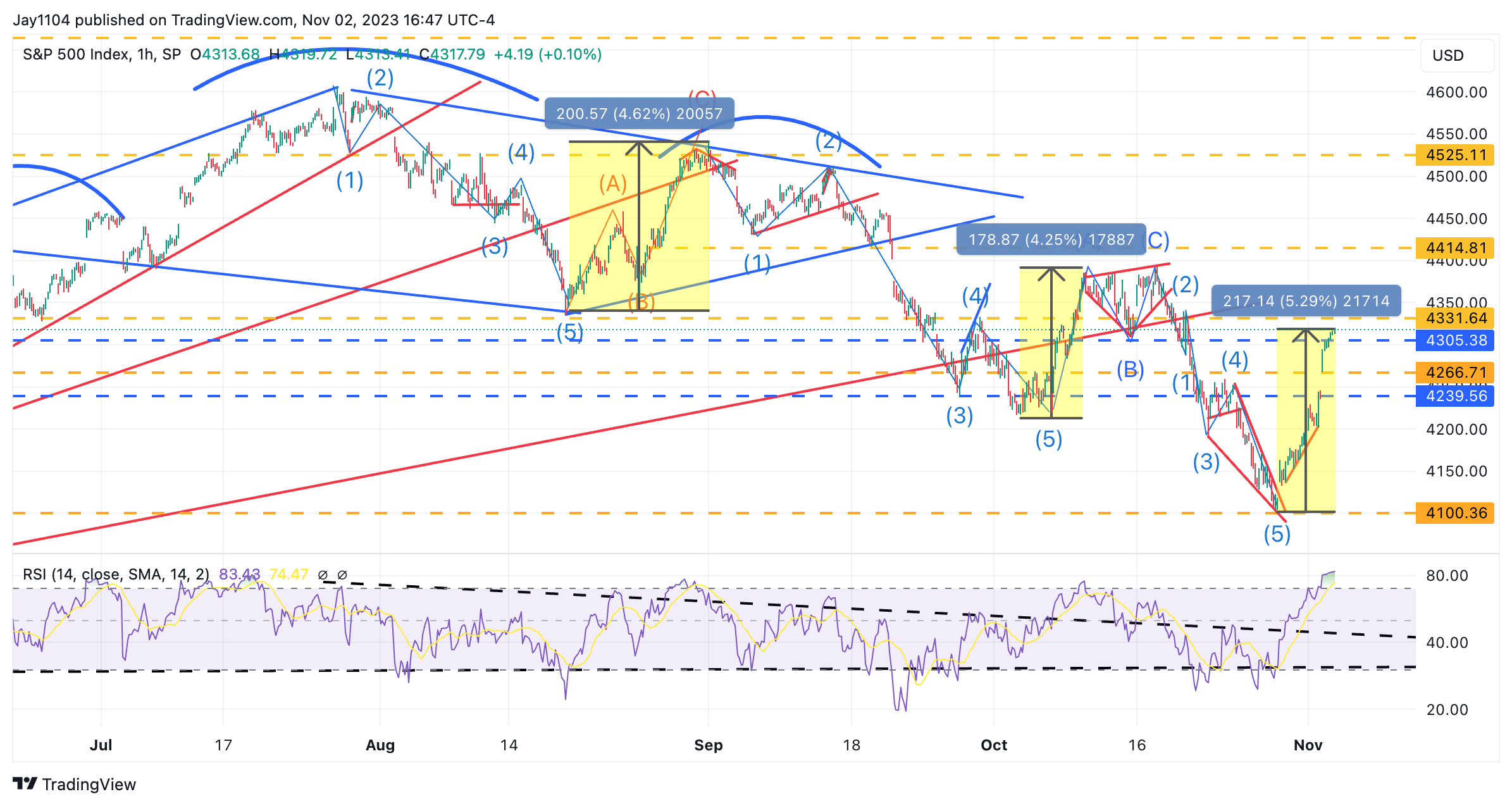
But the problem is that the rally in stocks has nothing to do with the Fed; it has to do with the mechanics of the bond market, not policy. Besides, Powell is talking again on November 9 at an IMF conference with a Q&A session, so he can undoubtedly straighten things out if needed at that point.
Mechanically, remember that the Treasury refunding announcement on Wednesday morning disappointed the bond bears, and the ISM manufacturing data was weak. There have also been no Treasury note or bond auctions this week in the 1 p.m. time slot. These had become an important of the trading day and often a considerable source of bond and stock market volatility.
Much of this can change quickly because we still have a Job report today and an ISM services report. Also, we have the return of the Fed speaker, and next week, the auctions resume with the 3-year, 10-year, and 30-years. So, maybe there is some more room to go here; perhaps we can even climb to 4,400. It doesn’t matter to me, because I don’t think the issues that brought the S&P 500 to 4,100 have passed. 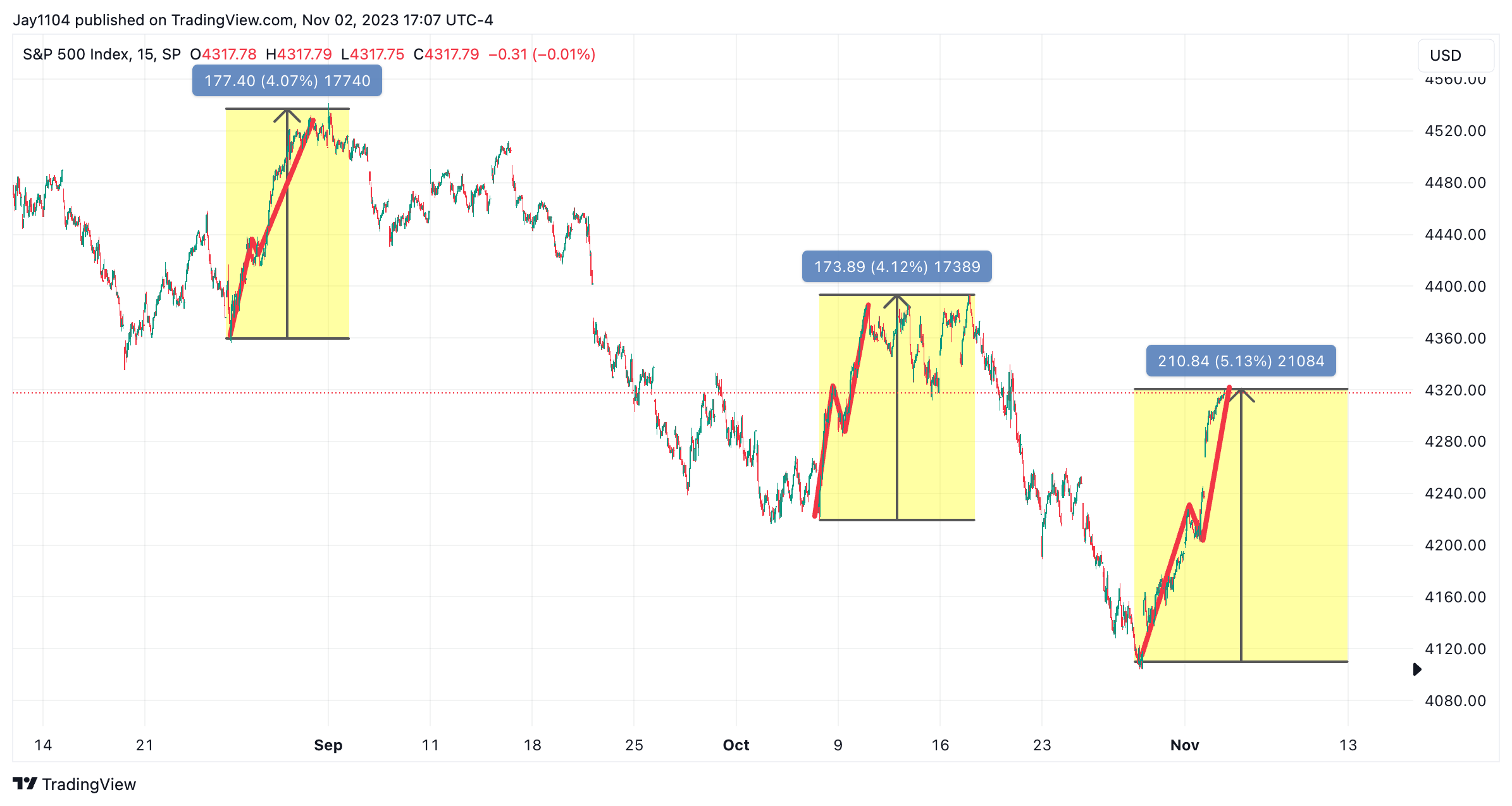
The other interesting piece for the S&P 500 is that these rallies we have had since mid-July have not only been rallies of 4%, but they come as 3-wave structures and have had the bulk of the gains coming over four days.
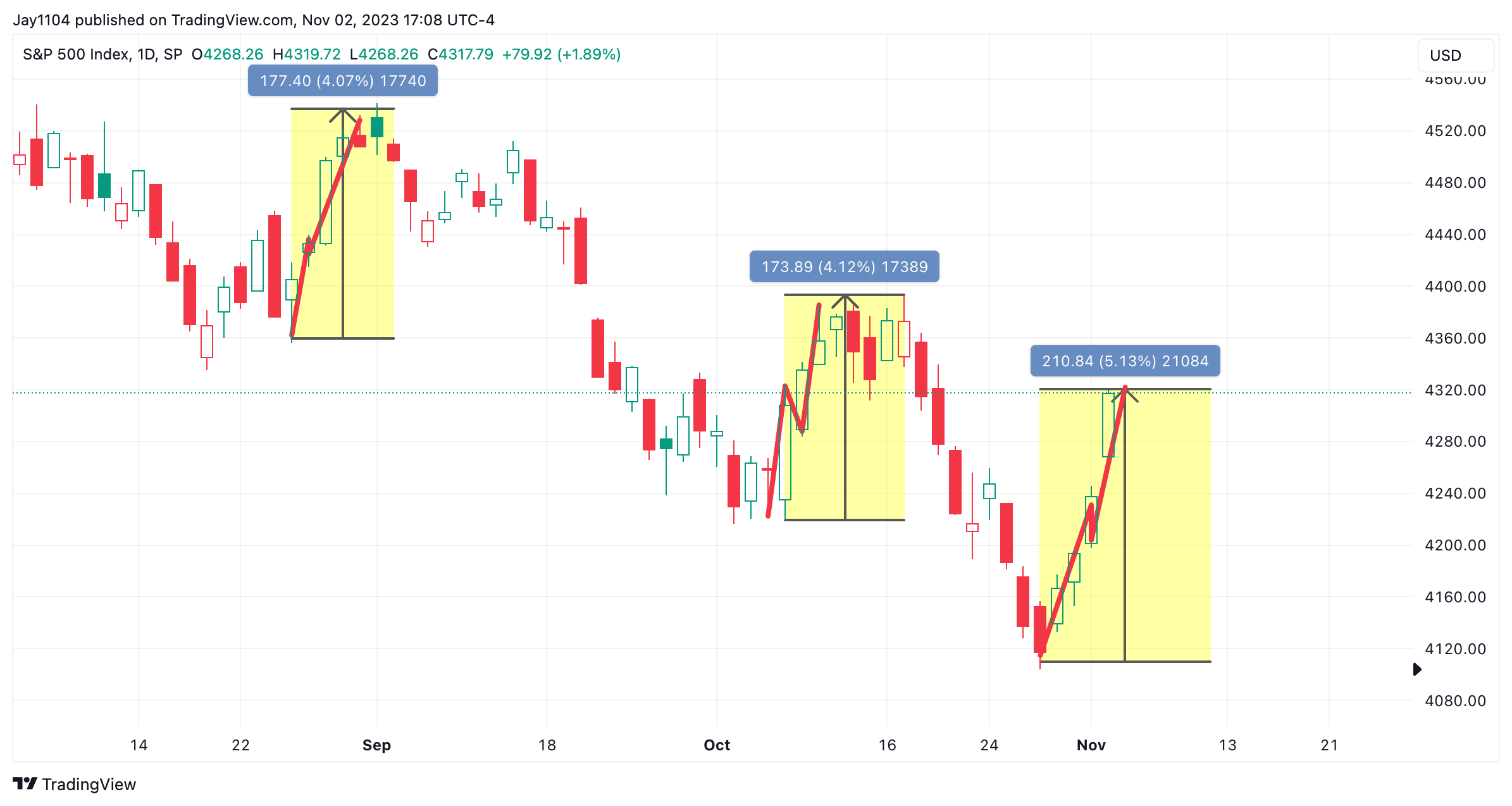
All when 10-year rates pulled back from their recent highs.
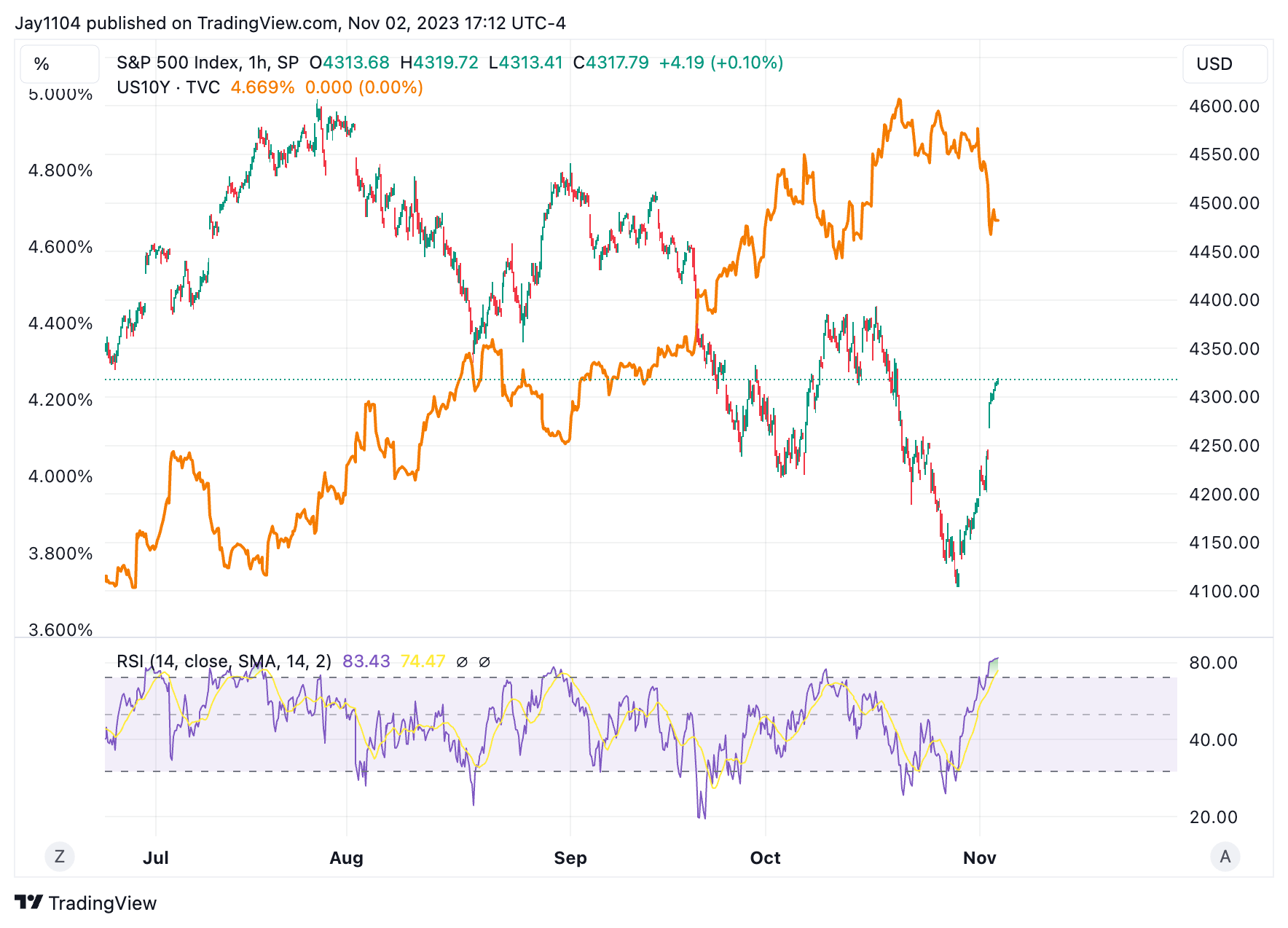
Could Rates Keep Rising?
Whether the 10-year and 30-year are done rising is unknown. The 30-year has fallen back to a vital support region, which has so far held. Clearly, if we get good data tomorrow that shows the economy is still healthy, given where the Fed Funds Rates and the 2-year rate are, then I see no reason for the 30-year rate to fall much further. The yield curve should keep steepening.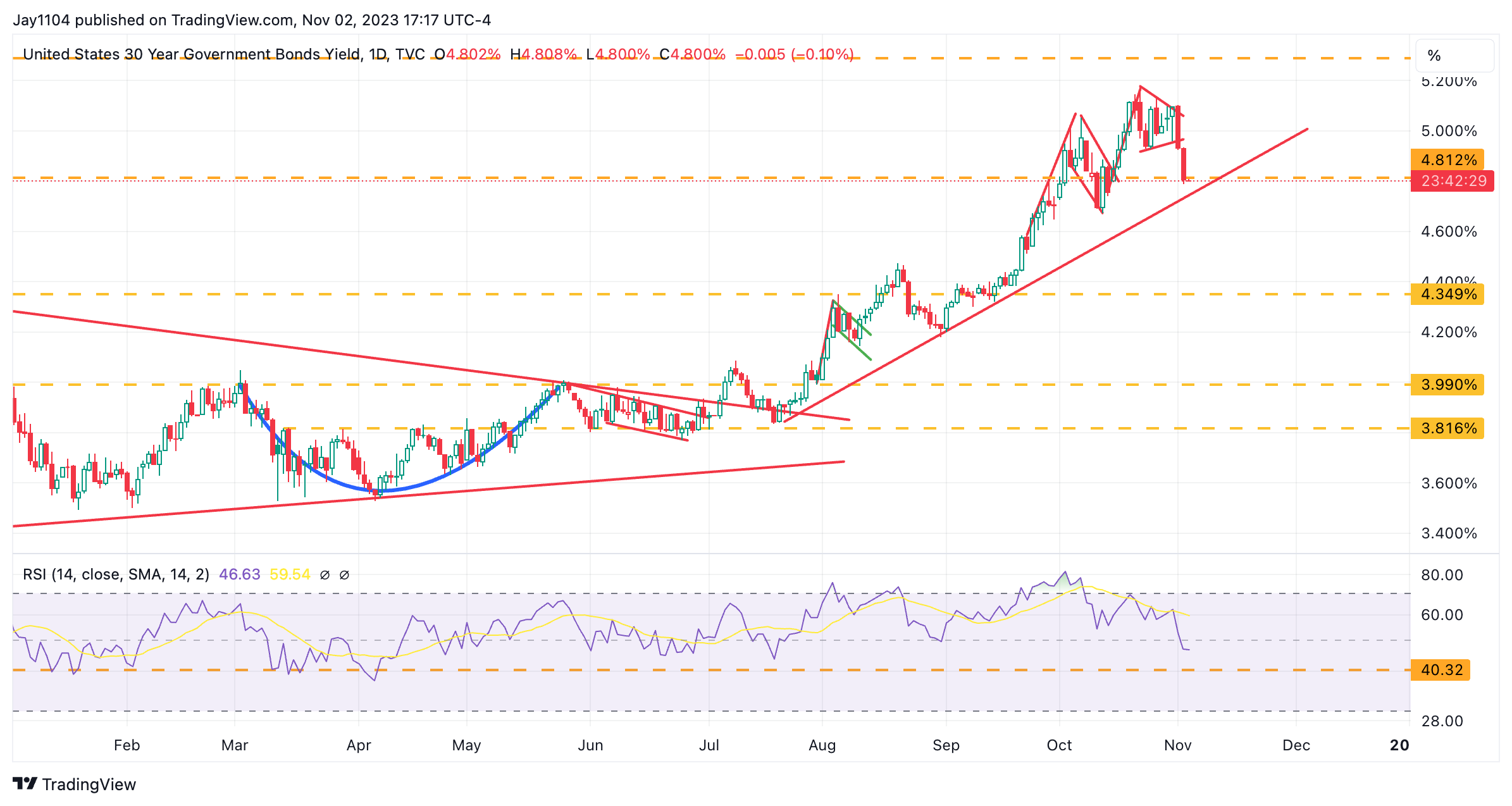
Meanwhile, the dollar index continues to consolidate.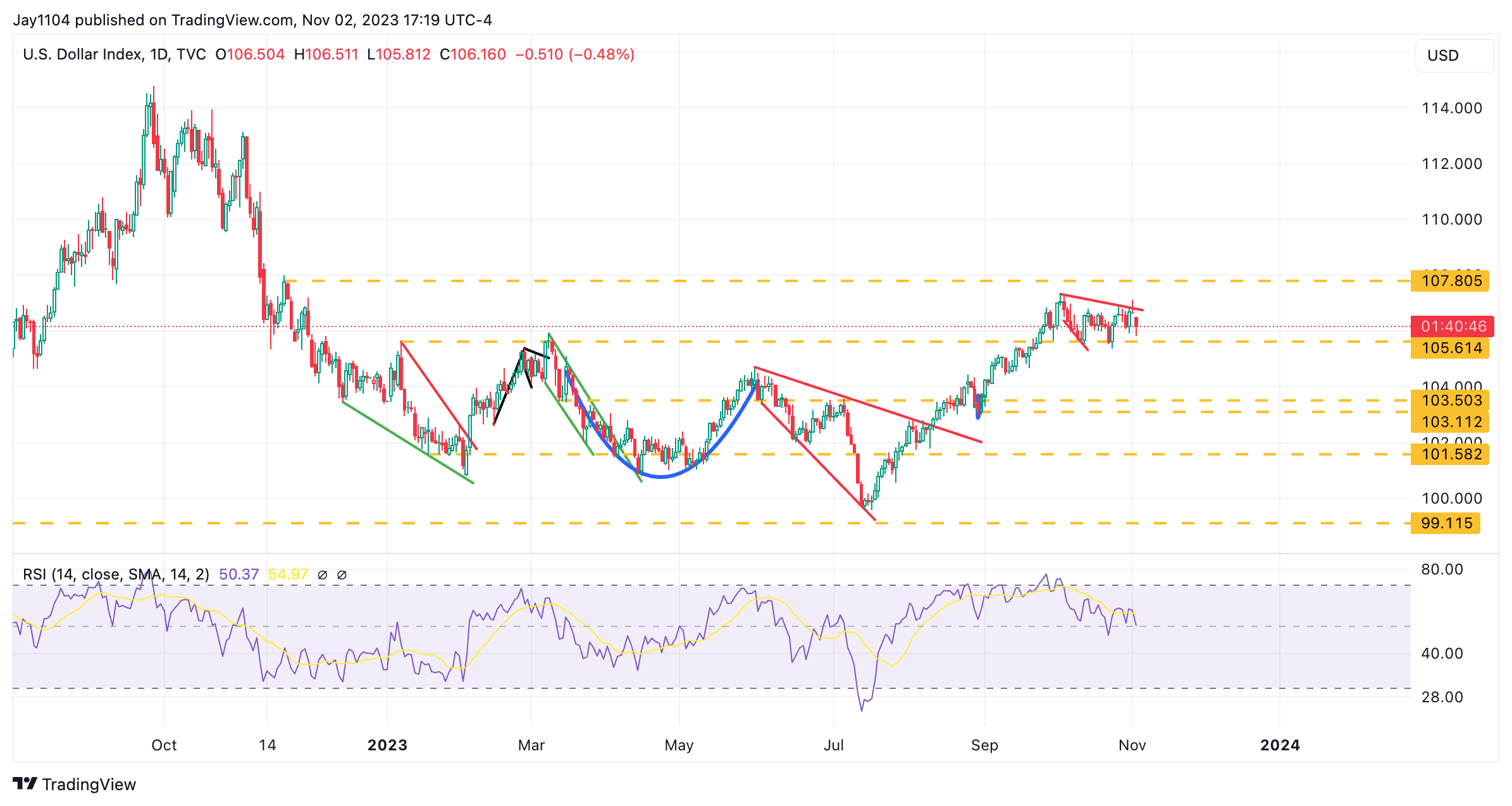
Apple Misses Revenue Guidance Estimates
Apple (NASDAQ:AAPL) had an inline result; it sounds like revenue guidance missed estimates; as the company noted on the call, it plans to see the same overall revenue as it did in the 1Q of last year, which suggests no growth.
Analysts had expected sales growth of 4.8%. That has the stock down about 3.5% after hours. It leaves stocks in the middle of the lower half of the channel, and it just means that it could trade down to $162 and not change much of anything from a technical standpoint.
